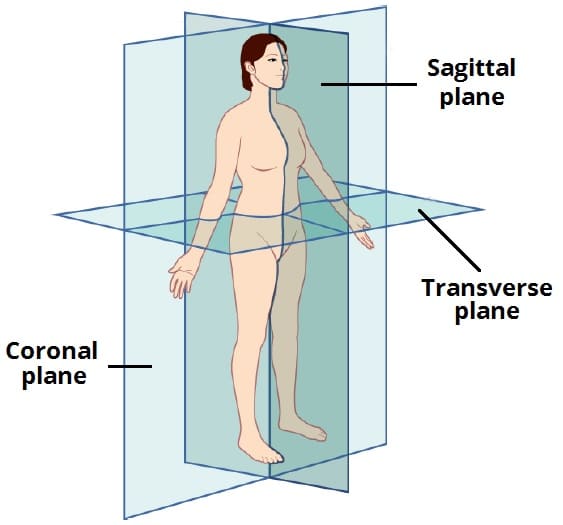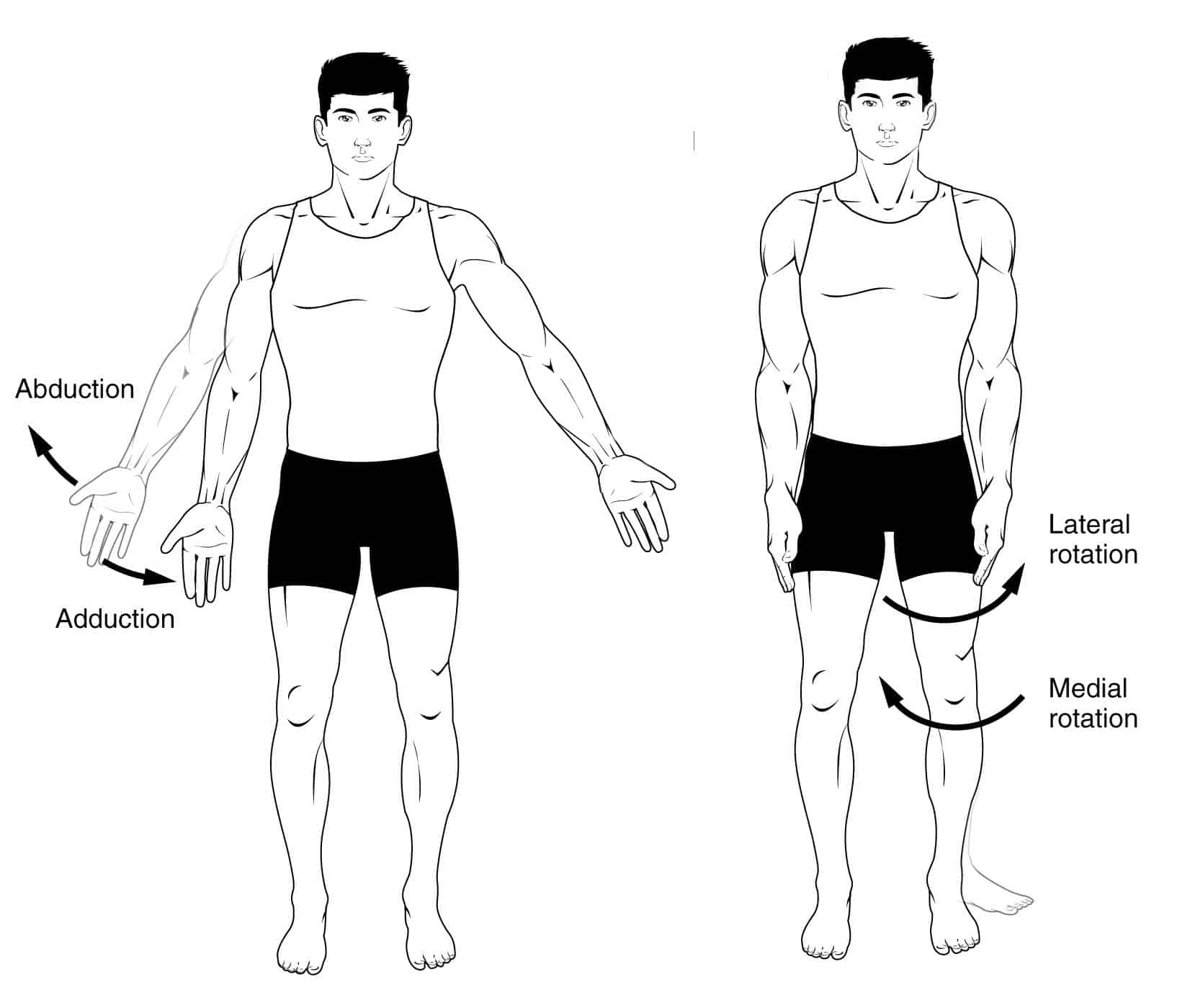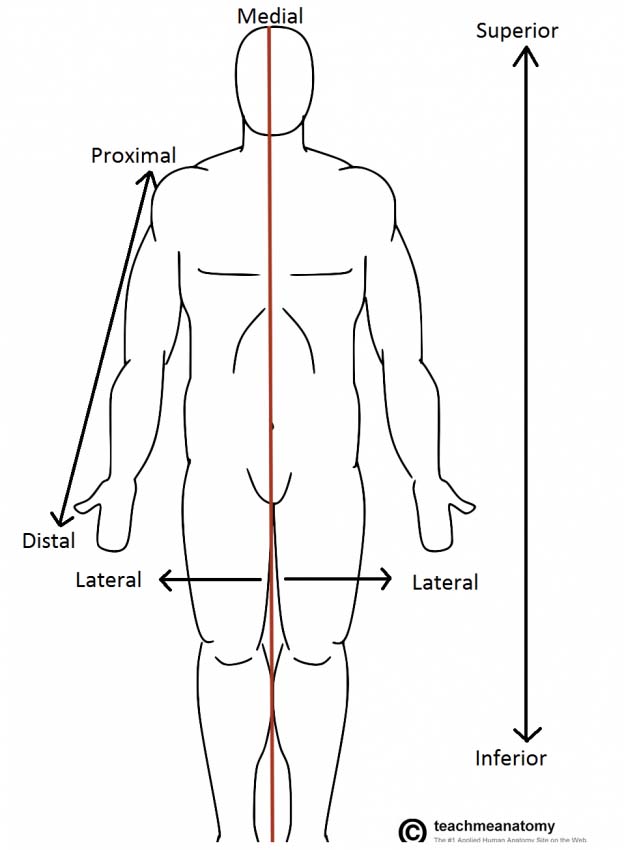- The Basics
- Head
- Neuroanatomy
- Neck
- Thorax
- Back
- Upper Limb
- Lower Limb
- Abdomen
- Pelvis
- 3D Body
Anatomical Terminology
Before defining any specific terms, the body must be given a universal position which is known as the anatomical position. This is a universal way to position the human body so it acts as a reference point for describing anatomy. In the anatomical position the body is facing forwards, arms relaxed and by the side with the palms of the hands facing forwards.
An anatomical plane is just a slice through the body. This slice however can be done at different angles with respect to the body. The three most commonly used planes are: sagittal, coronal and transverse. The sagittal plane divides the body into left and right regions. The coronal plane separates the front (anterior) and back (posterior) halves of the body. The transverse plane demarcates the upper parts of the body from the lower e.g. it divides the torso + upper limbs from the legs + hips.
Anatomical terms of movement are used to describe ways in which the body moves due to the action of certain muscles. This movement will occur at a joint which is an articulation between at least 2 bones. The main movements in the sagittal plane are flexion and extension. In the coronal plane we have abduction and adduction. Some joints can also rotate medially (internal rotation) and laterally (external rotation). There are other movements which are specific to some joints which will be in further detail in the article.
When describing anatomical terms of location specific terms are used to avoid confusion. These terms are relative; hence the location being described must be compared to another point on the body. If there was an imaginary midline drawn on the body then anything closer towards the midline is termed medial and anything away from the midline either left or right is termed lateral e.g. the little finger lies medially when compared to the index finger. Likewise if something is further to the front of the body it is anterior and if further back it is posterior.
In embryology, there are other terms used which is in further detail in the article on anatomical terminology.





